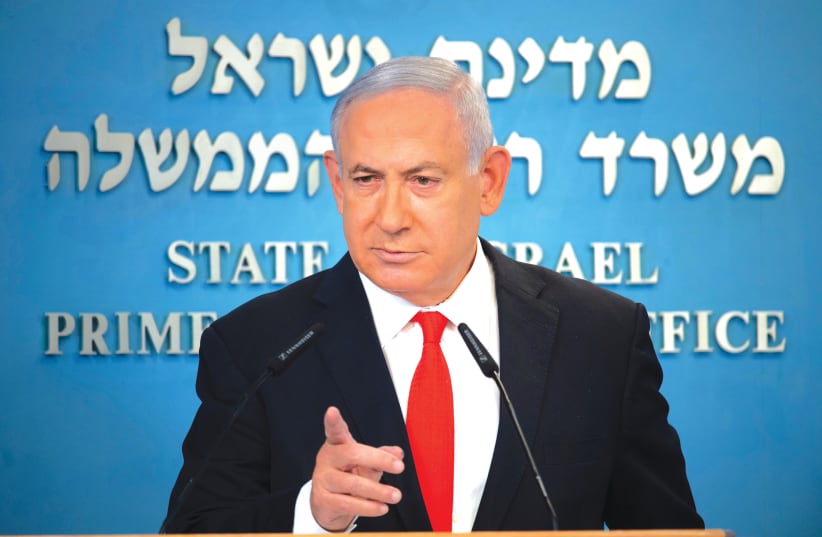This is in contrast to reports that Netanyahu bypassed Katz and met Bar-David himself last week to hammer out the compromise.
Israel already has guidelines that compel that government contracts be given to Israeli bidders as long as their asking price isn’t more than 15% higher than the non-Israeli companies bidding.
To be considered “Blue and White,” a product must contain 35% Israeli-made components.
Calling the new policy "populistic, pre-elections motivated" in nature, Tel Aviv Economics Professor Asaf Razin told The Jerusalem Post that the policy will do two things: "It will increase the costs of goods for businesses and consumers and, I think, weaken our export capacity."He said that manufacturers now focused on gaining clients overseas will now attempt to sell to the state.
"Such a protectionist policy might also lead to corruption if contracts will be given to those with pull in the right circles," he added, "but that won't necessarily be the result."
He warned that if the policy had a time-limit, and was meant to "put out the fires" created by the pandemic crisis that would be one thing, yet "if this will be our policy for years to come the growth of the Israeli market, and its efficiency, could decline."
The proposal being suggested is not time-limited, meaning that it would be an abiding decision even after COVID-19 vaccination would be in full swing in May and June.
The Health Ministry and Health Care providers were excluded from the plan, which means they will still be able to buy cheaper products or services offered by foreign companies to combat the pandemic, TheMarker reported on Sunday.
When large scale infrastructure projects are involved, a special committee will be created to decide with which bidder to do business - the Israeli one or the one from overseas. Local councils however will not enjoy such an option.
The government decision followed an earlier one, also made on Sunday, lowering custom taxes on imported fashion items. Led by Economy Minister Amir Peretz, the decision will drop the 12% tax on, for example buckles, to nothing. This will lower the cost of import and allow Israeli fashion designers to use such items in their own designs and offer them on the market at a lower cost ahead of the New Year.
The decision followed a three-year struggle during which Israeli fashion designers pointed to how large scale importers can bring into the market a container of completed products, dresses and pants and purses, and not pay any tax, yet Israeli employers in the fashion sector must pay a tax reaching NIS 13 million every year to use basic imports in their designs.
The loss of this state income is meant to be covered by the Economy and Finance ministries.
The campaign to change the taxation policy included a tour of Tel Aviv fashion studios by Likud MK Osnat Mark and Lahav Association for Self Employed Business Owners Roee Cohen, during which they offered shop-owners stickers that read: "Not made in Israel - Not my purchase!"
